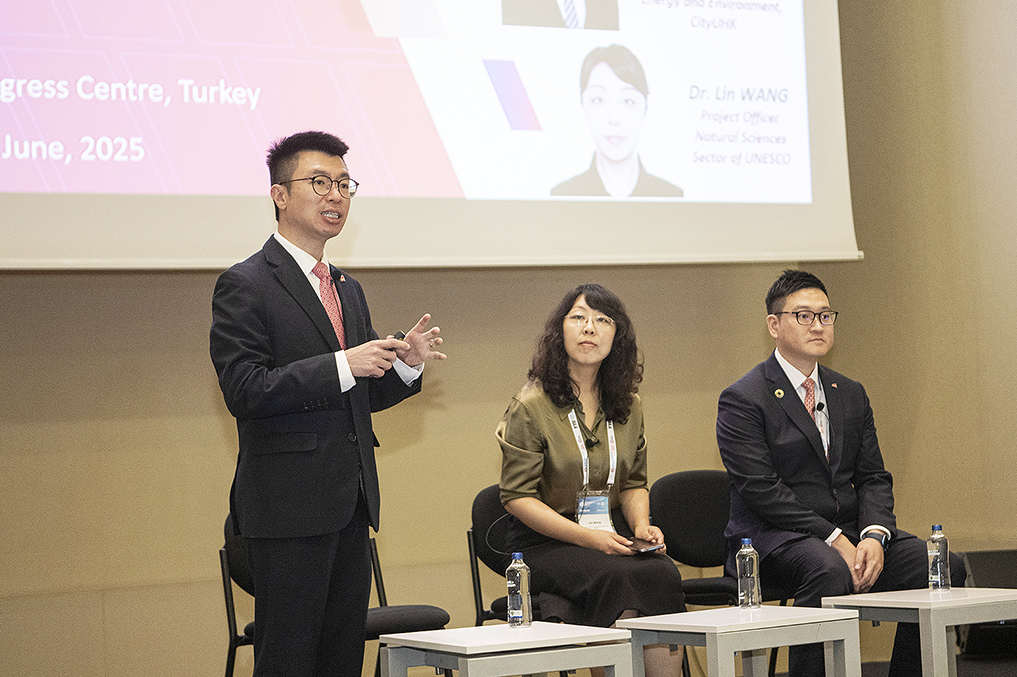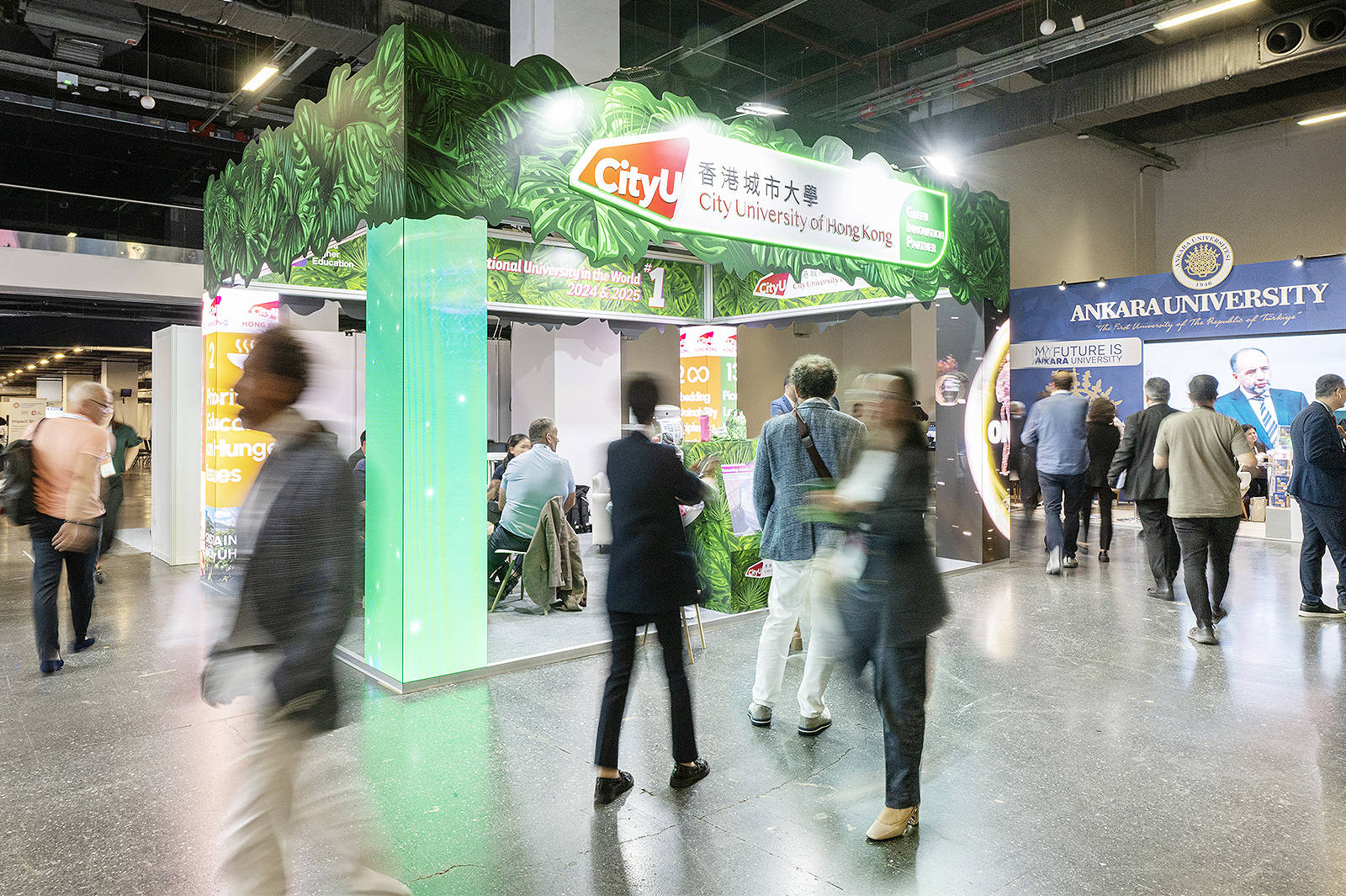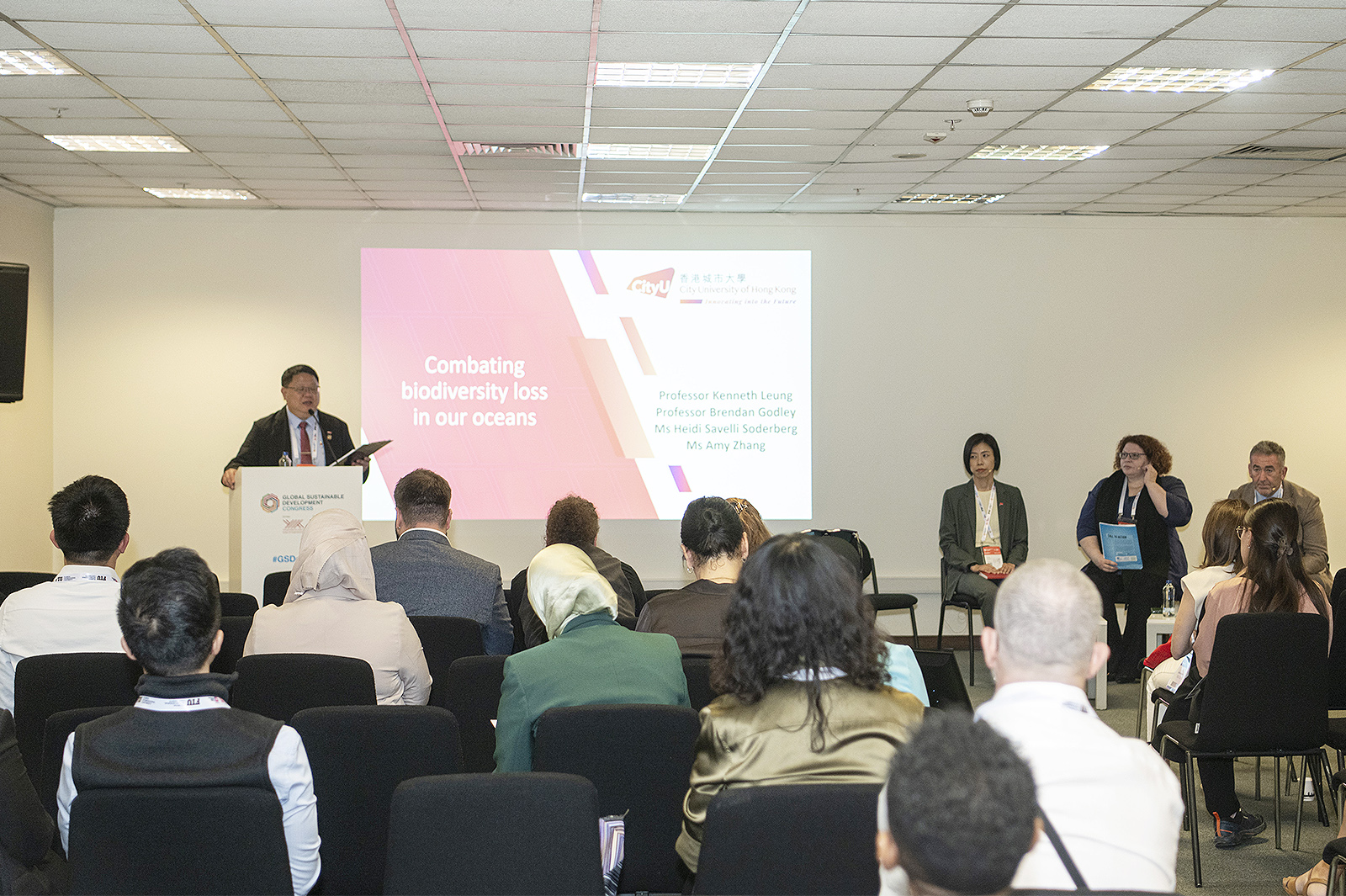CityUHK sustainability experts kick-start day 1 of Istanbul congress

Sharing insights on tackling the world's most challenging environmental issues was top of the agenda for researchers and partners from City University of Hong Kong (CityUHK) at the Global Sustainable Development Summit (GSDC) 2025 in Istanbul, Türkiye, from 16 to 19 June.
As the sole Green Innovation Partner for GSDC 2025, CityUHK was highly active in numerous invite-only sessions, keynote talks, panel discussions, and showcase presentations on day 1, engaging over 100 participants with CityUHK-led ideas, concepts, and visions, and simulating lively Q&A sessions that continued throughout the networking sessions.

The first CityUHK-led session on day 1 covered the UNESCO-endorsed programme “Fostering Innovation for Resilience and Sustainable Transformation”, or FIRST, aimed at co-developing affordable and scalable technologies that promote environmental sustainability, social equity, and improved quality of life.
FIRST specifically spotlights the need to assist those on the frontline of climate change. “Through FIRST, we aim to use and adapt our developed, affordable and sustainable technologies for positive social change around the world,” said Professor Edwin Tso of CityUHK’s School of Energy and Environment.
The FIRST programme, which is part of the International Decade of Sciences for Sustainable Development (IDSSD) led by UNESCO, aims to boost confidence in sustainable science research and applications.
“Programmes endorsed under the IDSSD are contributing to multiple expected outcomes and will drive forward green development,” said Dr Wang Lin of UNESCO, who is working with several CityUHK researchers on this initiative.
According to Professor Anderson Shum, Vice-President (Research), who is also contributing to FIRST, an innovative mindset was indispensable for programmes like FIRST.
“One of the ways we can achieve better accessibility to sustainable solutions is through our continuous breakthrough research. By constantly innovating to develop sustainable technologies, we can ensure quality and affordability,” he said.

A second day 2 session led by CityUHK focused on how marine biodiversity is chronically threatened by habitat degradation, overharvesting, pollution, biological invasion, and climate change. Professor Kenneth Leung Mei-yee, Chair Professor of Environmental Toxicology and Chemistry, Department of Chemistry and Director of CityUHK’s State Key Laboratory of Marine Pollution, moderated a specially produced discussion involving experts in conservation science, ESG-related matters in global markets, and marine pollution from the United Nations Environment Programme (UNEP).
Titled “Combating biodiversity loss in our oceans”, the panel explicitly addressed the urgent need for marine protection strategies, habitat restoration and enhanced policy frameworks to safeguard biodiversity with specific reference to the economics and business aspects behind conservation.
“In areas where biodiversity protection and conservation are high, we can see numbers of animals like turtles and whales rise,” said Professor Brendan Godley, University of Exeter. “I believe we must remain optimistic, and the ocean will respond if individuals, communities, and governments put their shoulder behind the wheel and effect change positively.”
Ms Amy Zhang, Société Générale Corporate and Investment Banking, explained the vital role that finance industries must play. “The financial sector is engaging in more innovative solutions in our field, such as implementing blue bonds, which raise finance for marine and ocean-based projects. Further, we need to motivate and mobilise the younger generation, and encourage them to engage in sustainable practices,” she said.
Ms Heidi Savelli-Soderberg of UNEP emphasised that it was essential for people across all areas, whether across academia, industry, or government, to join hands to advance sustainable development.
“It is important for each field to know how to properly package and deliver their information to other disciplines, so that we can work together beneficially,” she said.
Wrapping up this energising session on day 1, Professor Leung said marine and coastal ecosystems are essential to global biodiversity and economic opportunities. “From our discussion, it is clear people across all fields are aware of these pressing issues. Together, we must play our part in protecting our oceans,” he said.
Please visit the thematic website for more information about CityUHK sustainability experts sharing their insights at GSDC 2025.